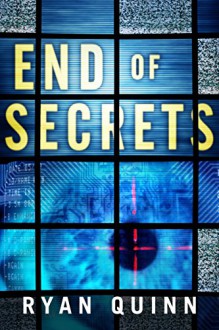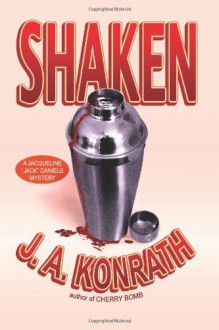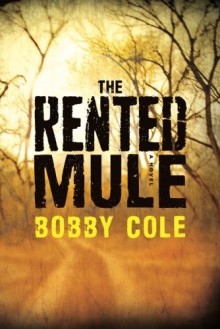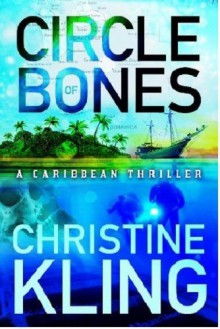

2001 traf Jilliane Hoffman eine folgenreiche Entscheidung. Nach 10 Jahren, in denen sie als stellvertretende Staatsanwältin und juristische Beraterin des Florida Department of Law Enforcement arbeitete, beschloss sie, ihren aufregenden Job in der Strafverfolgung aufzugeben, um Autorin zu werden. Während eines Prozesses gegen einen Vergewaltiger beobachtete sie, wie eine Betroffene „zitternd vor Angst mit der eigenen Aussage haderte“. Sie fragte sich, wie dieses Mädchen reagieren würde, stünde sie an ihrer Stelle und könnte ihren Angreifer zur Rechenschaft ziehen. Sie begann, aus dieser Idee eine Romanhandlung zu entwickeln. Leider konnte sie die Herausforderungen ihres Berufs nicht mit ihrem Privatleben und dem Traum vom Schreiben vereinbaren. Deshalb kündigte sie – ein mutiger Schritt, der belohnt wurde, denn ihr Debüt „Cupido“ wurde ein internationaler Erfolg und der Auftakt einer Reihe von Thrillern um die Staatsanwältin C.J. Townsend. „Argus“ ist der dritte Band.
Eine grausame Serie sadistischer Frauenmorde versetzt Miami in Angst und Schrecken. Die Opfer werden vor laufender Kamera brutal gefoltert – und viele Augen sehen zu. Staatsanwältin Daria DeBianchi ist sicher, dass der Tatverdächtige Talbot Lunders nicht allein handelt. Hinter ihm steht ein skrupelloses Netzwerk wohlhabender und einflussreicher Personen, ein elitärer Club, der die Morde als Attraktion vermarktet. Leider schweigt Lunders. Der einzige, der bereit ist, mit Daria zu reden, sitzt im Todestrakt des Staatsgefängnisses von Florida ein. Es handelt sich um William Bantling, der 10 Jahre zuvor für die Cupido-Morde verurteilt wurde. Er behauptet, die Identitäten der Clubmitglieder zu kennen und bietet Daria seine Mithilfe an, verlangt dafür jedoch einen hohen Preis. Daria ist lange genug dabei, um zu wissen, dass sie sich Idealismus in ihrem Job nicht leisten kann. Doch rechtfertigt der Fall einen Pakt mit dem Teufel?
Es ist wirklich sehr lange her, dass ich die ersten beiden Bände der „C.J. Townsend“-Reihe, „Cupido“ und „Morpheus“, gelesen habe. Daher war ich positiv verblüfft, als ich meine Nase in „Argus“ steckte und feststellte, dass ich überhaupt keine Schwierigkeiten hatte, in die Handlung zu finden. Das lag nicht nur daran, dass die Vorgänger mächtig Eindruck bei mir hinterlassen hatten, sondern vor allem an der speziellen Struktur der Geschichte. „C.J. Townsend“ ist keine 0815-Thrillerserie. Die einzelnen Bände erzählen keine abgeschlossenen Fälle, der Fokus liegt nicht auf der Polizei oder auf Behörden wie der CIA oder dem FBI. Seit „Cupido“ dreht sich diese Reihe unmissverständlich um einen einzigen, gigantischen, komplexen Fall, der wächst, mutiert und sich mit jedem Band weiterentwickelt. Es geht nicht um stereotype Ermittler_innen, es geht um das Böse in gewissen Menschen, das sich in spektakulären Auswüchsen krimineller Energie Bahn bricht und um den nachhaltigen Einfluss, den ihre Taten für die Betroffenen bedeuten. Dadurch ergeben sich andere Ansprüche an die Ausarbeitung der Figuren, was mir persönlich sehr entgegenkommt. Jilliane Hoffman war, wie erwähnt, selbst Staatsanwältin. Ich vermute, dass sie in ihren Romanen deshalb tiefgreifende, kritische Fragen aufzuwerfen vermag, die das grundlegende Täter-Opfer-Verhältnis reflektieren und die Fallstricke des US-amerikanischen Rechtssystems illustrieren. In „Argus“ besteht nie ein Zweifel daran, dass Talbot Lunders schuldig ist. Unsere wackere Heldin Daria DeBianchi muss allerdings vor Gericht beweisen, dass er schuldig ist. Anhand der Steine, die ihr durch frustrierende Verfahrensrichtlinien in den Weg gelegt werden, bespricht Hoffman subtil die Grenzen des Rechtsstaats, die Diskrepanz zwischen Recht und Gerechtigkeit und stellt außerdem eine Verbindung zu den bisherigen Ereignissen her. Die Vergangenheit ist in „Argus“ durch den Auftritt von William Bantling aka Cupido äußerst präsent, so präsent, dass es unmöglich ist, den Fall in der Gegenwart von seiner Verurteilung zu trennen. Meinem Empfinden nach ist Bantling sogar deutlich prominenter inszeniert als Lunders, der lediglich als Stellvertreter für die Mitglieder des ominösen Snuff-Clubs fungiert, von dem Bantling bereits Jahre zuvor berichtete. Seine Involvierung verleiht der Handlung das, was mir an den Hoffmans Büchern am besten gefällt: Unberechenbarkeit. Nichts ist sicher oder garantiert, sie behandelt die Wahrheit fließend und konfrontiert ihre Leser_innen mit neuen Wendungen, die diese zwingen, bestimmte Aspekte komplett neu zu bewerten. Für mich war „Argus“ demzufolge herrlich spannend; es hat mir grenzenlosen Spaß bereitet, mal wieder in einen sensationell aufregenden Thriller einzutauchen, mich schockieren und überraschen zu lassen und mich endlich mal nicht darüber ärgern zu müssen, dass sich die Figuren wie wandelnde Klischees verhalten.
„Argus“ war eine rundum befriedigende Lektüre. Es stimmt mich optimistisch, dass es noch Thriller-Autor_innen gibt, die mehr aus einem Ermittlungsszenario herausholen als ein Katz-und-Maus-Spiel zwischen Mörder_in und Fahnder_innen. Jilliane Hoffman beleuchtet ihren beeindruckend facettenreichen Fall, der die gesamte „C.J. Townsend“-Reihe begleitet, aus verschiedenen Perspektiven und erreicht dadurch sein maximales Potential. Sie schreckt nicht davor zurück, unangenehme Tatsachen wie die Lücken des US-amerikanischen Rechtssystems anzusprechen und nach den ideologischen Grenzen von Gerechtigkeit zu fragen. Bevor ich mich nun verabschiede, möchte ich noch ein potenzielles Missverständnis aufklären. Im Klappentext meiner Ausgabe von „Argus“ steht „Der dritte Band der großen Cupido-Trilogie“, was impliziert, dass die Reihe nach diesem abgeschlossen wäre. Das ist sie nicht. Der nächste Band heißt „Nemesis“. Der deutsche Verlag hatte seine Gründe, diesen Satz abzudrucken – welche das sind, verrate ich aber natürlich nicht. ;-)

 Log in with Facebook
Log in with Facebook 
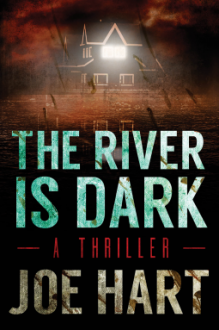

![By Jilliane Hoffman Retribution (C.J. Townsend Thriller) [Paperback] - Jilliane Hoffman By Jilliane Hoffman Retribution (C.J. Townsend Thriller) [Paperback] - Jilliane Hoffman](http://booklikes.com/photo/max/220/330/upload/books/b/8/b8e2929d9bea1958b718a9552cbe6182.jpg)
![By Jilliane Hoffman The Cutting Room (C.J. Townsend Thriller) [Paperback] - Jilliane Hoffman By Jilliane Hoffman The Cutting Room (C.J. Townsend Thriller) [Paperback] - Jilliane Hoffman](http://booklikes.com/photo/max/220/330/upload/books/4/1/41f5db8c4750dc479944b22f74d5fa2e.jpg)
![By Jilliane Hoffman Last Witness (C.J. Townsend Thriller) [Paperback] - Jilliane Hoffman By Jilliane Hoffman Last Witness (C.J. Townsend Thriller) [Paperback] - Jilliane Hoffman](http://booklikes.com/photo/max/220/330/upload/books/5/4/547b4d3eab5611d964a5a725c568b209.jpg)
